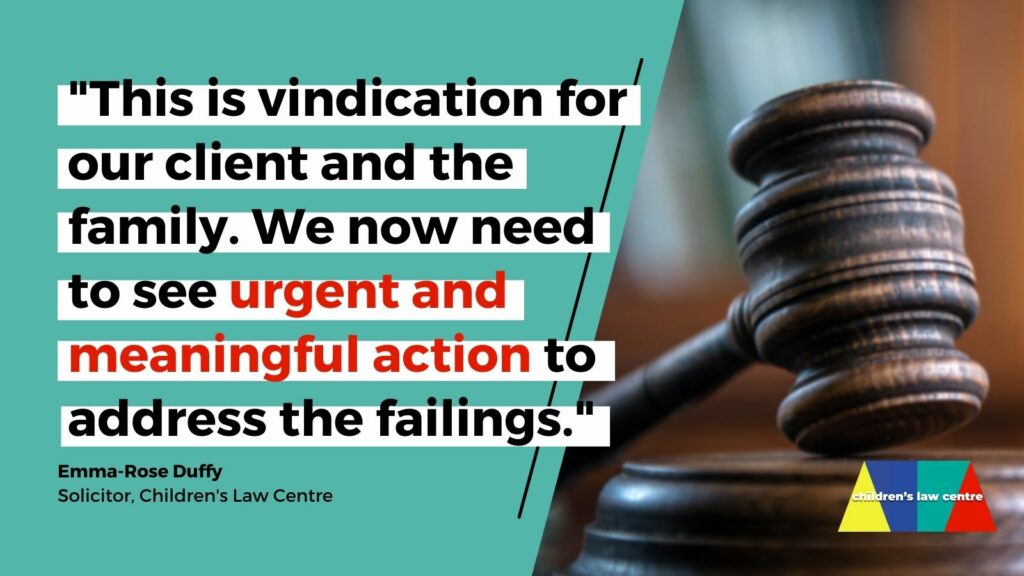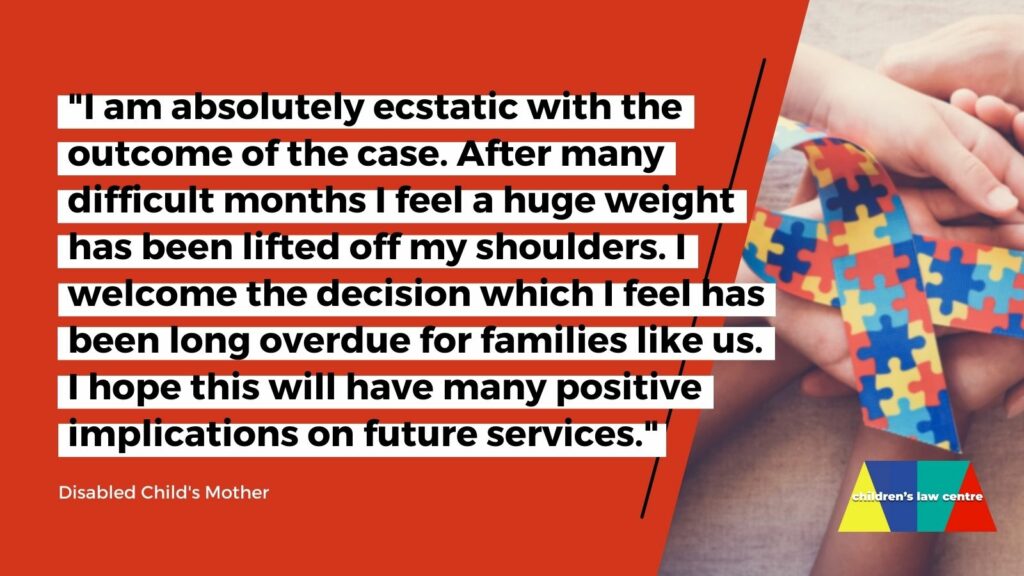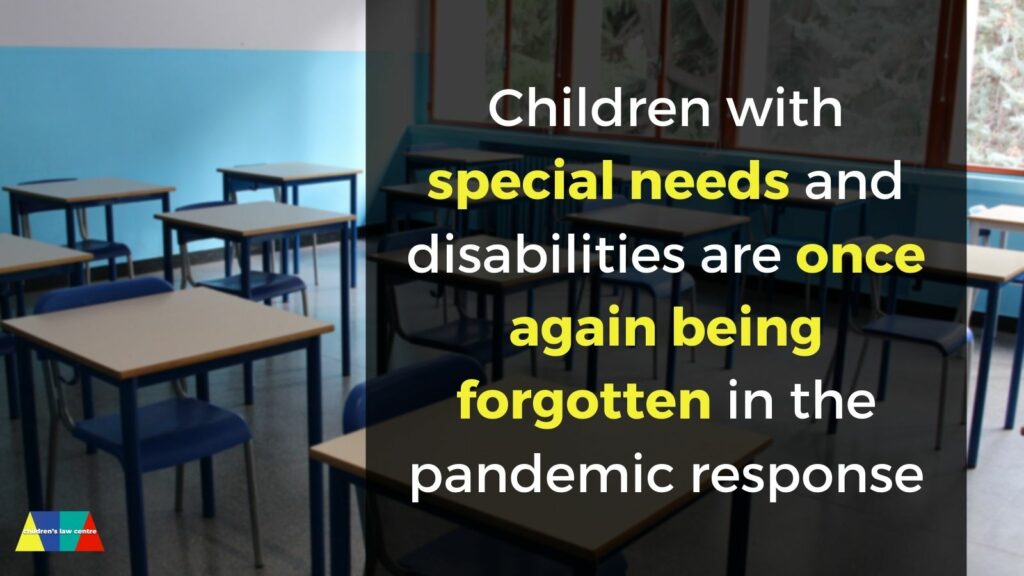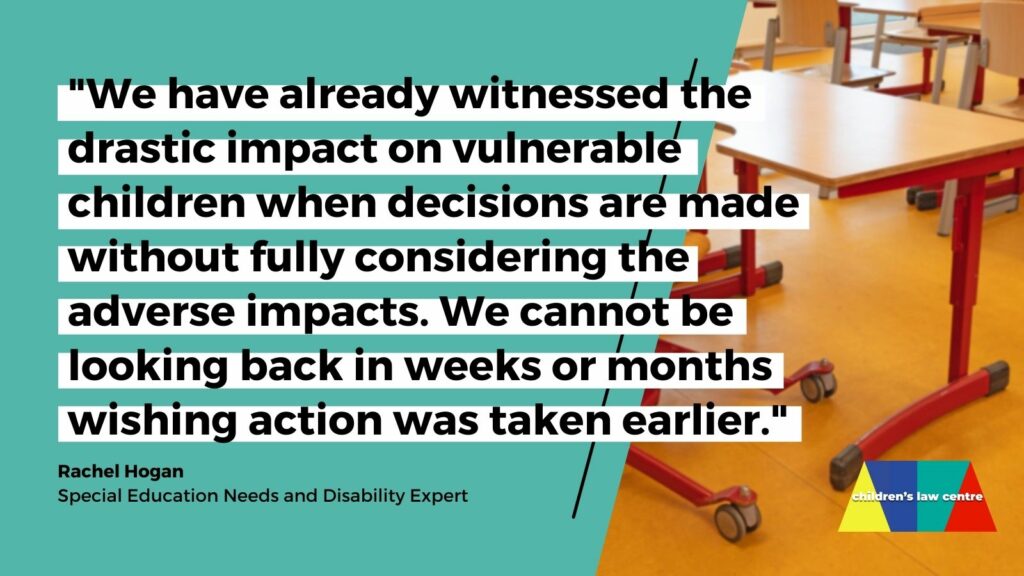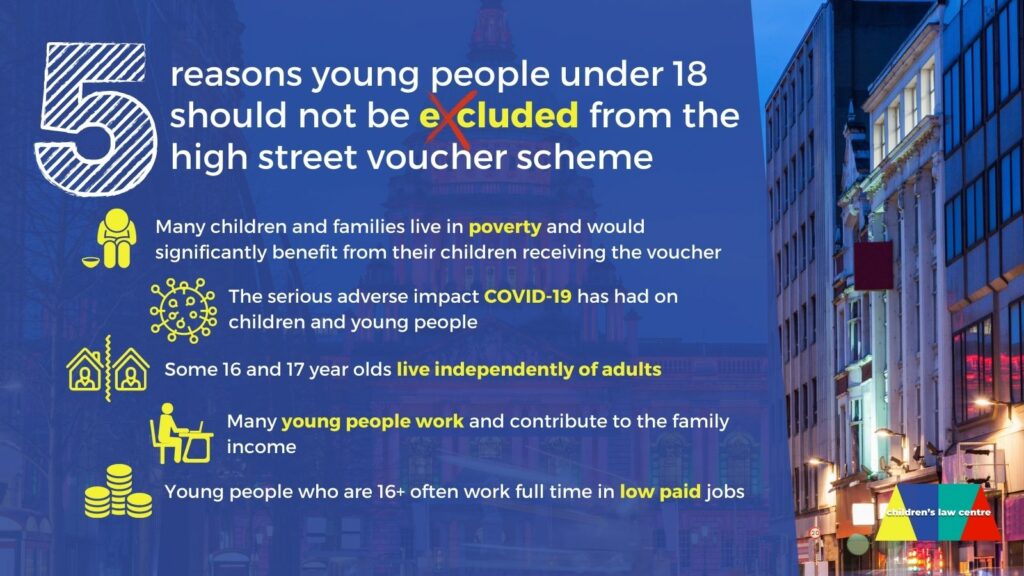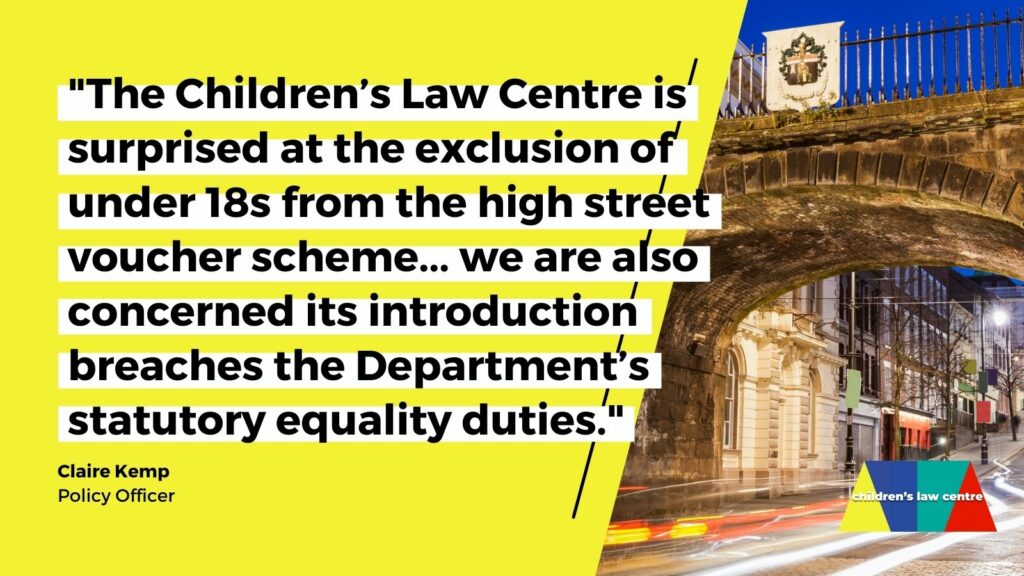14 September 2021
A number of young people, aged under 18, have submitted formal complaints to the Department for the Economy for failing to comply with its equality scheme in relation to its decision to exclude young persons under 18s from the High Street Voucher Scheme.
The young people have been assisted in their complaints by the Children’s Law Centre (CLC). Both CLC and the Committee on the Administration of Justice (CAJ) had previously submitted complaints that the Department for the Economy had not equality tested the policy at all before making policy decisions to exclude under 18s.
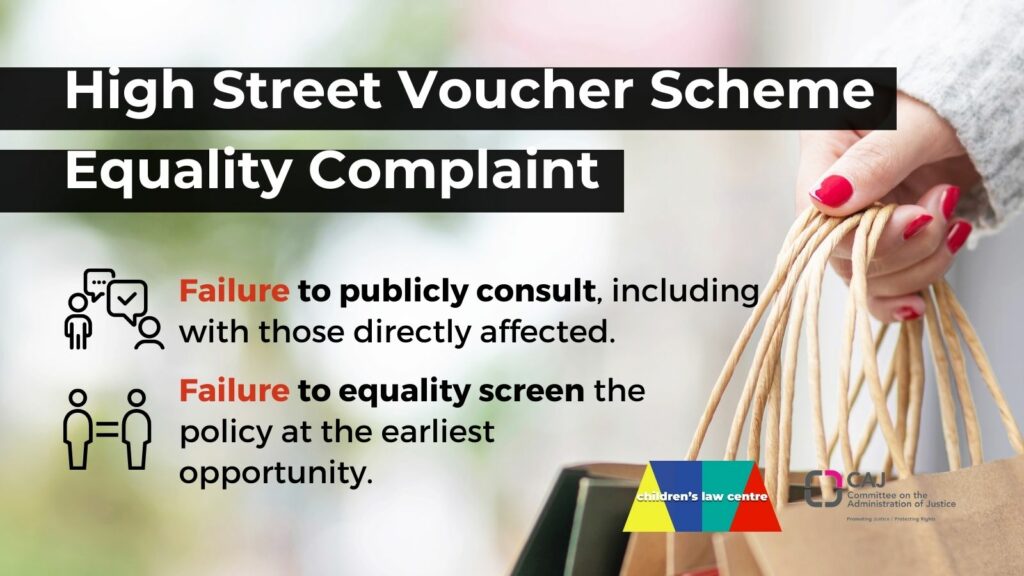
The complaints by young persons were made on the basis of two key failures by the Department for the Economy. Firstly, that it failed to publicly consult on the policy, including with those directly affected. Secondly, that it failed to carry out an Equality Impact Assessment on the policy before making a decision.
Claire Kemp, Policy Officer at the Children’s Law Centre said: “This is a significant development and is the direct result of a number of failures by the Department for the Economy to comply with its own Equality Scheme. Had the Department consulted, and equality assessed the policy at the earliest possible stage, as it is supposed to, the negative impact of excluding children would have been highlighted and consideration for a more inclusive policy could have taken place.
“Equality screening should be carried out at the beginning of the process for a reason. It is there to highlight any negative impact on protected groups and ensure mitigating measures are put in place to avoid discrimination.
“It is not in the gift of decision makers or public bodies to disregard such an important step, or indeed to carry out their duties after the fact. The Equality Commission has also been clear that COVID-19 is no excuse for failing to abide by statutory equality duties.
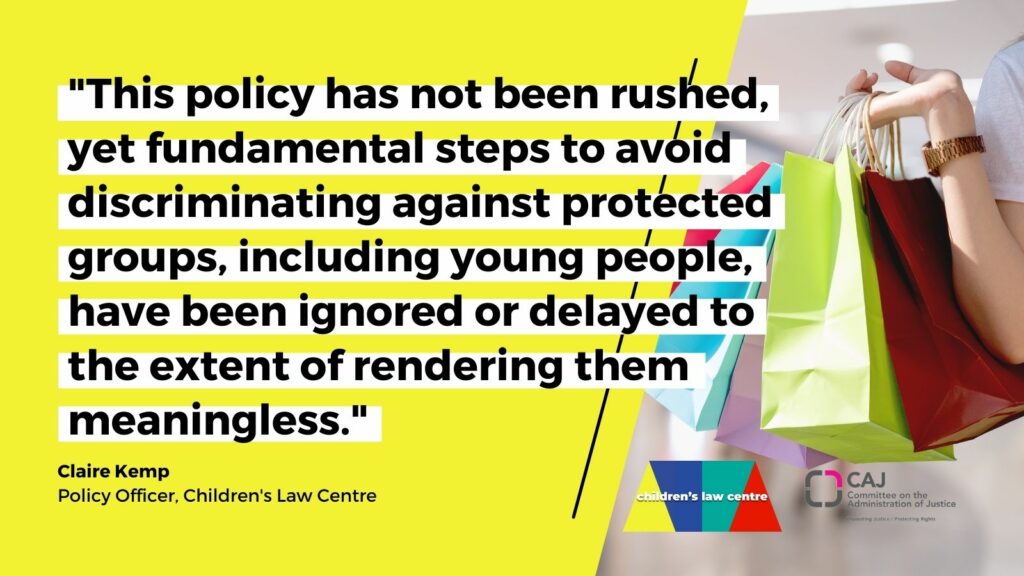
“In any case, the High Street Voucher Scheme has been in development for close to a year now and it was only after we lodged a complaint with the Department that they carried out an equality screening, completing it just days before the scheme is scheduled to go live. There has also been no consultation with young people or mitigation to negate the adverse impact on under 18s.
“This policy has not been rushed, yet fundamental steps to avoid discriminating against protected groups, including young people, have been ignored or delayed to the extent of rendering them meaningless. The Department for the Economy is clearly in breach of its Equality Scheme.”
Only following the complaints by CLC and CAJ has the Department for the Economy belatedly produced an equality screening document. This however only considers the exclusion of under 18s as a ‘minor’ impact and does not propose any remedial action or commit to a full Equality Impact Assessment.


